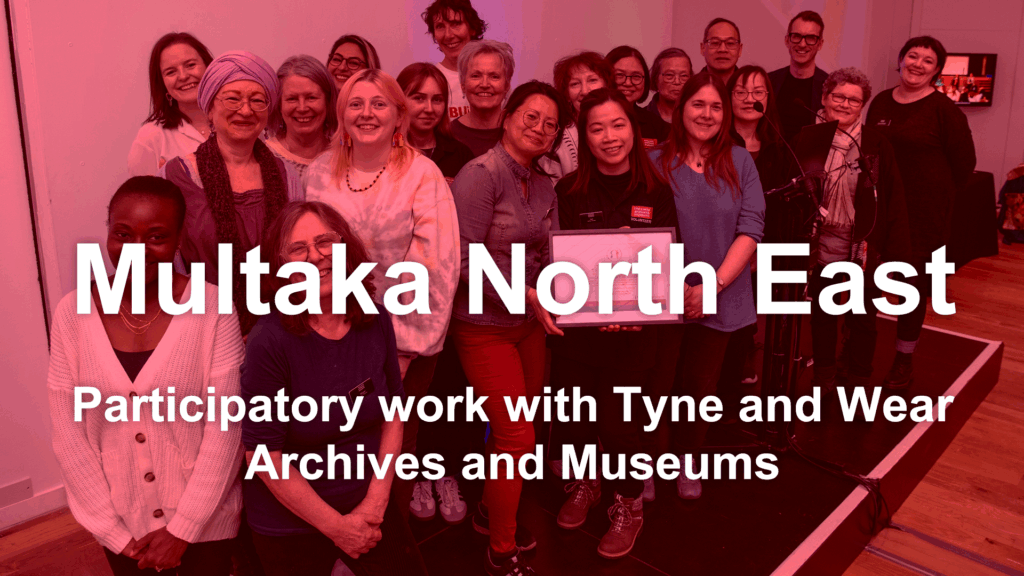
About Tyne & Wear Archives & Museums
Tyne & Wear Archives & Museums (TWAM) is a regional museum, art gallery and archives service, managing museums and galleries across Tyneside and the Archives for Tyne and Wear.
About the project
Multaka (which means ‘meeting point’ in Arabic) is an international network of museums designing programmes and participation relating to those with migration backgrounds. The programme here was devised to embed working strategies relating to lived experience of forced migration into local communities.
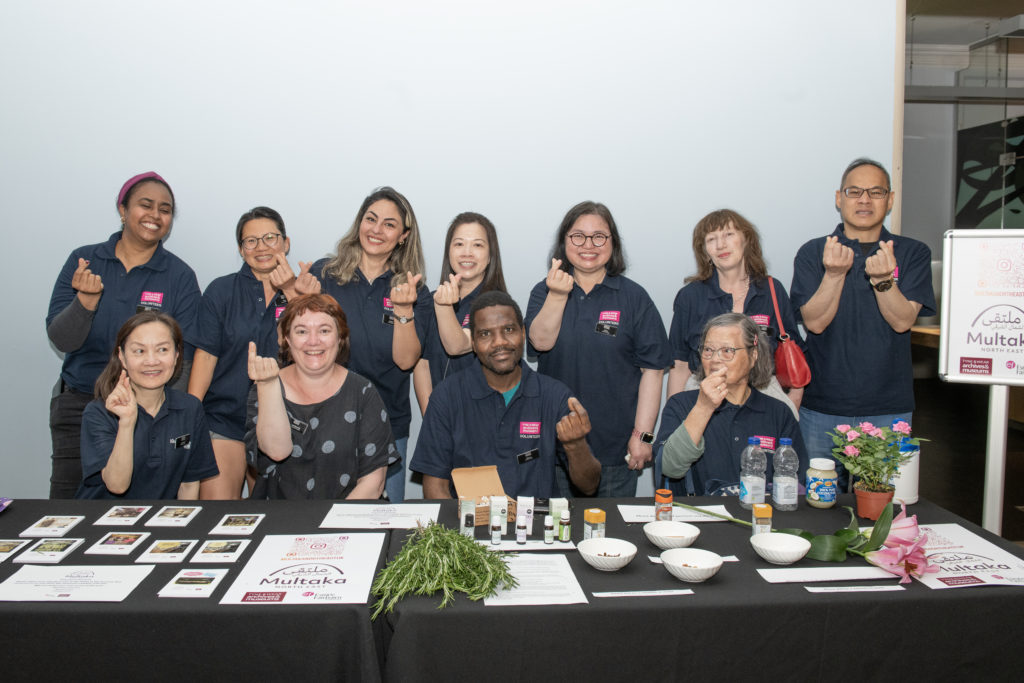
Project Context
Why did you create the project?
TWAM has engaged with Sanctuary Seekers and new arrivals since 2015 with its Home and Belonging programme at the Hatton Gallery, after being aproached by an anonymous donor to deliver a programme focusing on on volunteering programme by refugees and asylum seekers. This became the starting point for developing activity to refresh organisational goals, improve staff awareness and create a sustainable relationship with frontline organisations.
Local and national interest
The success of the pilot programme enabled TWAM to develop a funding bid to the Esmée Fairburn Foundation to build its offer. The organisation connected with the Multaka International Network and met with international partners regularly, working closely with Multaka Oxford collaborating in a talk at the Museums Association annual conference in 2023. The project team included lived experience volunteers comprehensively in its talks, seminars and conferences, in person, online or pre-recorded. On a national level this has led to other museums and galleries reaching out to discuss ways of working within their collections. Tyne and Wear Archives and Museums achieved the Museums of Sanctuary Award across all nine venues in 2023.
What community/communities are you working with or aiming to engage/increase participation with?
Tyne and Wear Archives and Museums has sites across four local authority areas. Museums created bespoke offers including volunteer and participation opportunities according to the needs of the different collaborative communities.
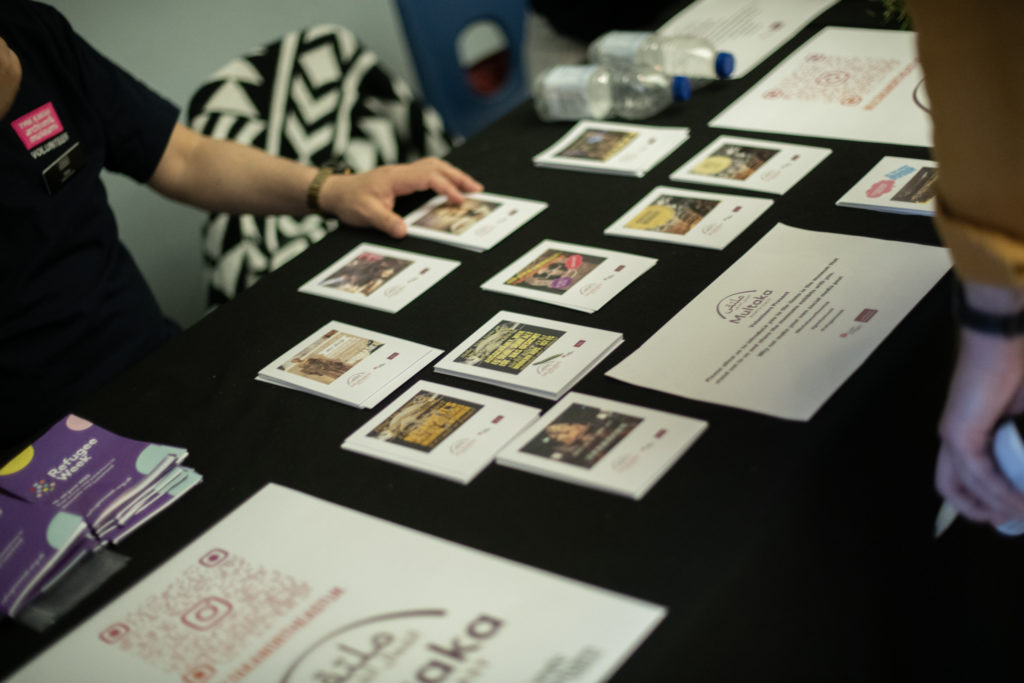
Goals
The project’s goal was to create sustainable relationships with frontline organisations supporting refugee and asylum seeker communities; developing TWAM staff, and building awareness through training delivered by the West End Refugee Service, anti-racist and trauma-informed practice training, with input from the International Rescue Committee.
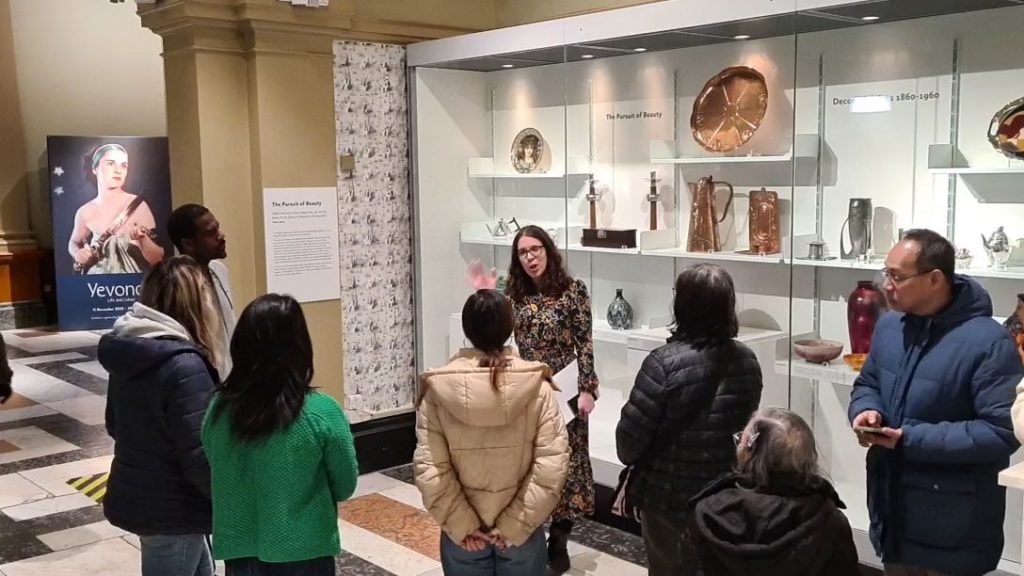
Participatory considerations, practices and outcomes
The project team had links with Newcastle City of Sanctuary Network, widening the project’s networks and visibility while enabling direct consultation with respect to direct referrals via Local Authority Asylum Liason Officers (LASLO) teams.
As the programme developed, word of mouth helped the programme’s reputation as a safe and welcoming space. The organisation developed intercultural dialogue, celebrated skills and knowledge, in multiple languages, with relevant partnerships informing on safeguarding and enabling bespoke trauma-informed work. Museums provided a focus of shared interest through a community of interest, friendship, with regular reflection sessions and one-to-one support; this fed into the recruitment of a museum Advisory Group, steering work for Refugee Week, producing a city-wide approach shared in a publication widely shared with relevant partner organisations. One-off evaluation sessions worked productively to reflect and review the programme.
An Instagram account was developed so the volunteers could share their achievements, safely. Posts were also turned into postcards for volunteers to promote their work. Whatsapp for volunteers was the preferred and only successful way of engaging and increased attendance above texting and emails. A set of rules was created around using the platforms and translated into key languages.
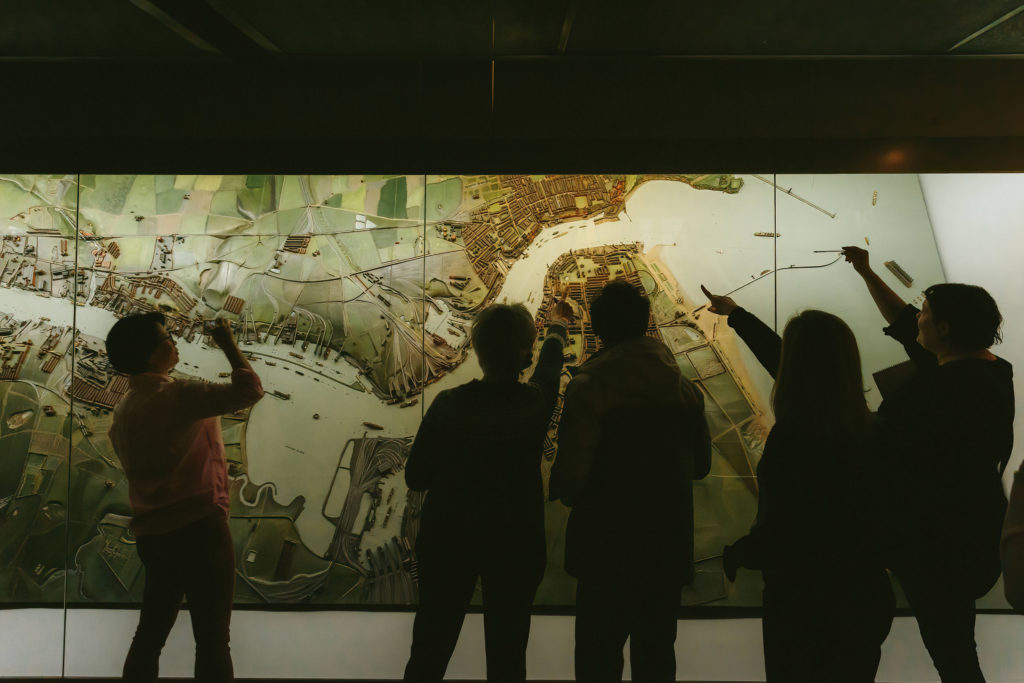
Reflections
Many Multaka volunteers went on to other volunteering opportunities within the museums and promoted these within wider communities.
In other regions, some organisations were less confident in attending independently; this was overcome with either collecting groups or staff accompanying people. These partnerships took time and required consistent building of trust with participants. Travel cost are a major barrier to any engagement as an audience member, participant or volunteer. This is further impacted by many organisation going cashless. A lack of resource in this area restricts attendance to those within walking distance to venues. Changing ESOL timetables require flexibility, and a specific lead around maintaining and co-ordinating relationships and programme offers in Newcastle.
Learn more
https://www.twmuseums.org.uk/volunteers/multaka
https://www.twmuseums.org.uk/communities/museum-of-sanctuary